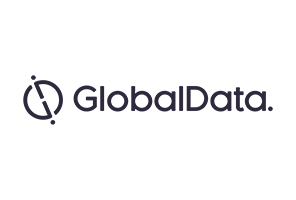For more than half a century in Europe, there have been no novel treatments indicated specifically for chronic kidney disease (CKD)-associated hyperkalemia. As such, the arrival of new hyperkalemia agents with preferable onsets of action and safety has been long awaited by European nephrologists.
In 2018, GlobalData expects that there will be fierce competition between two upcoming hyperkalemia drugs, Vifor Pharma’s Veltassa (patiromer sorbitex calcium) and ZS Pharma’s Lokelma/ZS-9 (sodium zirconium cyclosilicate), each of which harbors unique advantages in the clinical and/or commercial settings.
The first of these agents, Vifor Pharma’s Veltassa, is a cross-linked polymer of calcium, a high-capacity cation potassium binder. It is formulated as a powder for suspension and administered orally. Veltassa was approved for marketing by the European Commission in July 2017, and key opinion leaders (KOLs) interviewed by GlobalData believe that the drug will follow a similar adoption trend as that witnessed following the US launch of Veltassa in October 2015. GlobalData expects that the launch of Veltassa in Europe will occur in late 2017 or early 2018.
ZS Pharma, a wholly owned subsidiary of AstraZeneca, is the developer of the second novel hyperkalemia agent, Lokelma. Lokelma is a non-systemic sorbent that acts as a potassium-selective cation exchanger. Currently, the candidate is pending approval in Europe and is in Phase III clinical trials in Japan. In the US, the candidate has been rejected twice by the FDA due to manufacturing issues. Despite this, the FDA is not requesting any new clinical data, and ZS Pharma plans to resubmit a New Drug Application a third time after addressing all of the FDA’s concerns.
Veltassa has several advantages over Lokelma, including an anticipated first-to-market status, a more robust positive clinical data set for patients suffering chronic hyperkalemia, and a favorable regulatory precedent in the US. While Lokelma lags behind Veltassa in the aforementioned parameters, the drug boasts a commercial advantage through its development by Pharma giant AstraZeneca. Despite the setbacks experienced in the US, KOLs expressed optimism towards Lokelma’s clinical potential, a sentiment shared by the Committee for Medicinal Products for Human Use (CHMP) of the European Medicines Agency (EMA), which gave the drug a positive recommendation in February 2017.
Veltassa and Lokelma are significant advancements for treating hyperkalemia in CKD patients. Although head-to-head clinical trials are warranted, there are several clinical and commercial factors that will influence the success of each product once they enter the European market. Pending Lokelma’s approval, KOLs remain split on which hyperkalemia agent might come out on top, but GlobalData believes that Veltassa’s anticipated first-to-market status will give the potassium binder a distinct commercial advantage in Europe.

US Tariffs are shifting - will you react or anticipate?
Don’t let policy changes catch you off guard. Stay proactive with real-time data and expert analysis.
By GlobalDataCKD is a chronic condition in which patients suffer from an irreversible and progressive loss in renal function over many months and years, ultimately resulting in end-stage renal disease and the requirement for renal replacement therapy. CKD-associated hyperkalemia refers to the condition of elevated blood potassium, a potentially serious condition that can result in a major cardiac event. The risk of hyperkalemia increases with the severity of CKD. Treatment with tolevamer sodium is commonly initiated if a patient’s blood potassium levels exceed 5mEq/L, and usually includes dietary management and the cessation of any potassium-raising medications.




